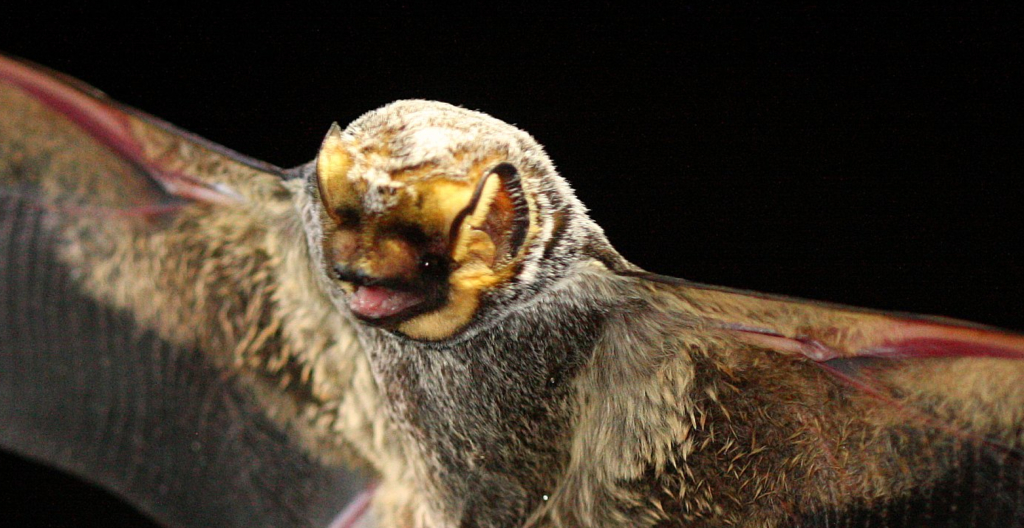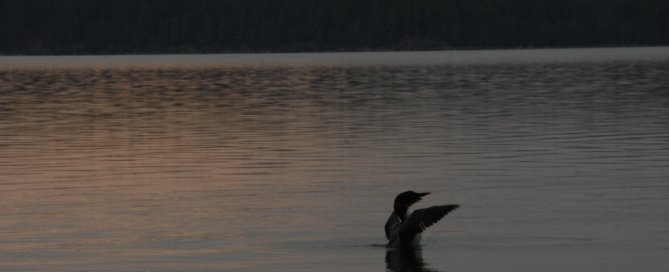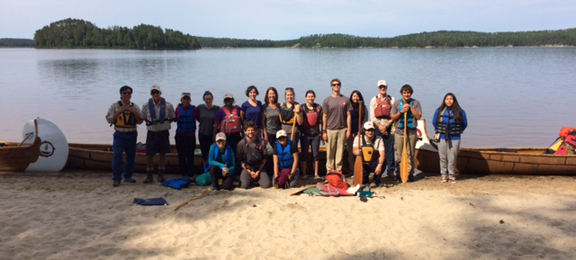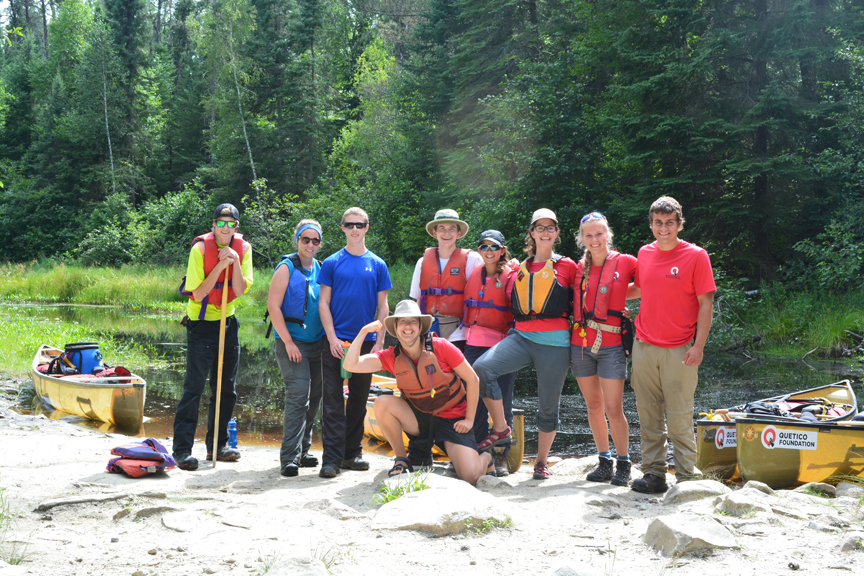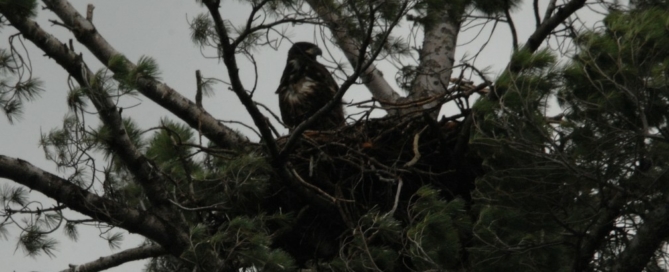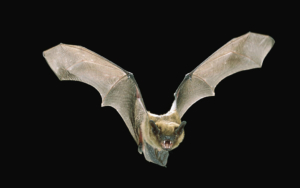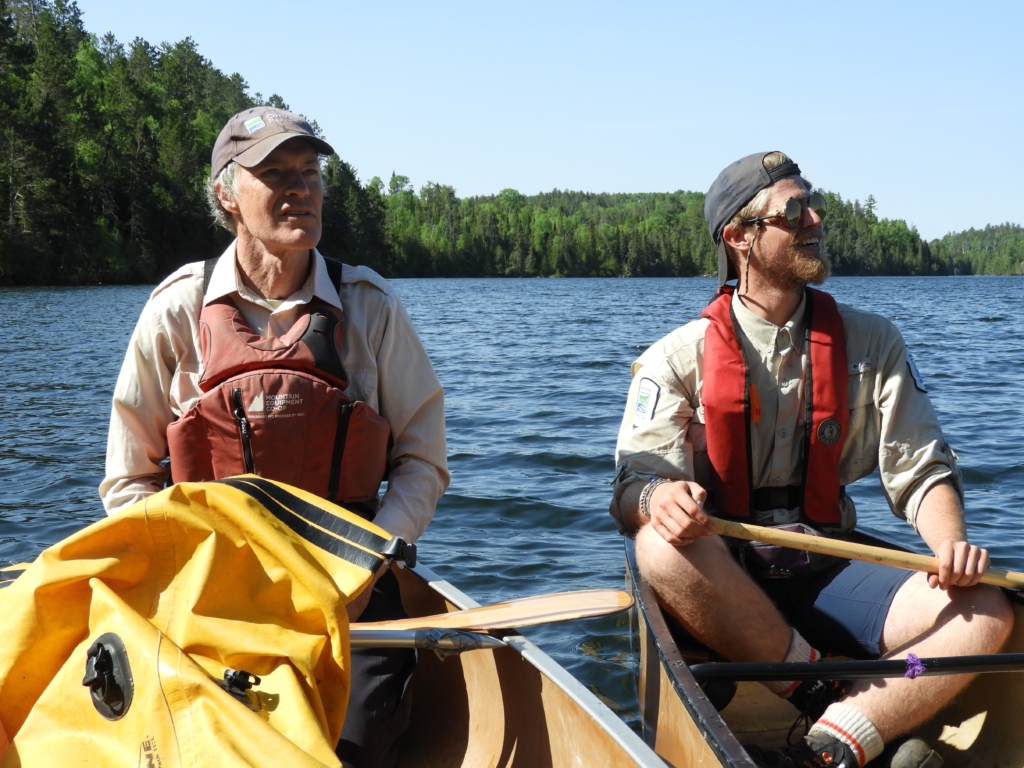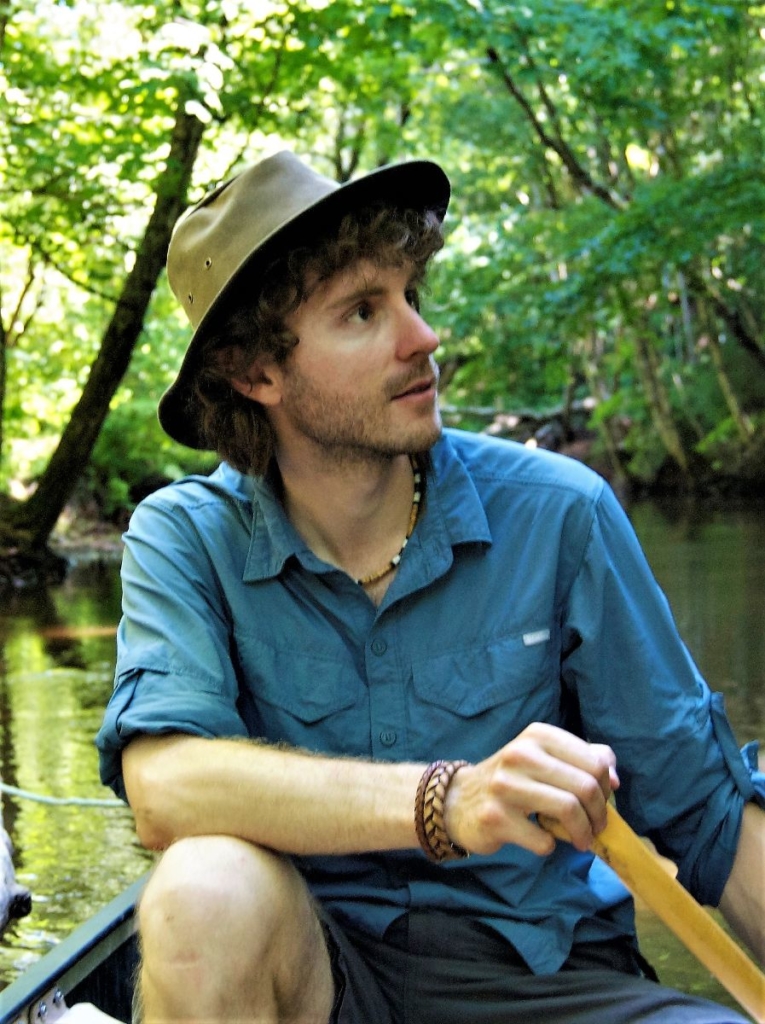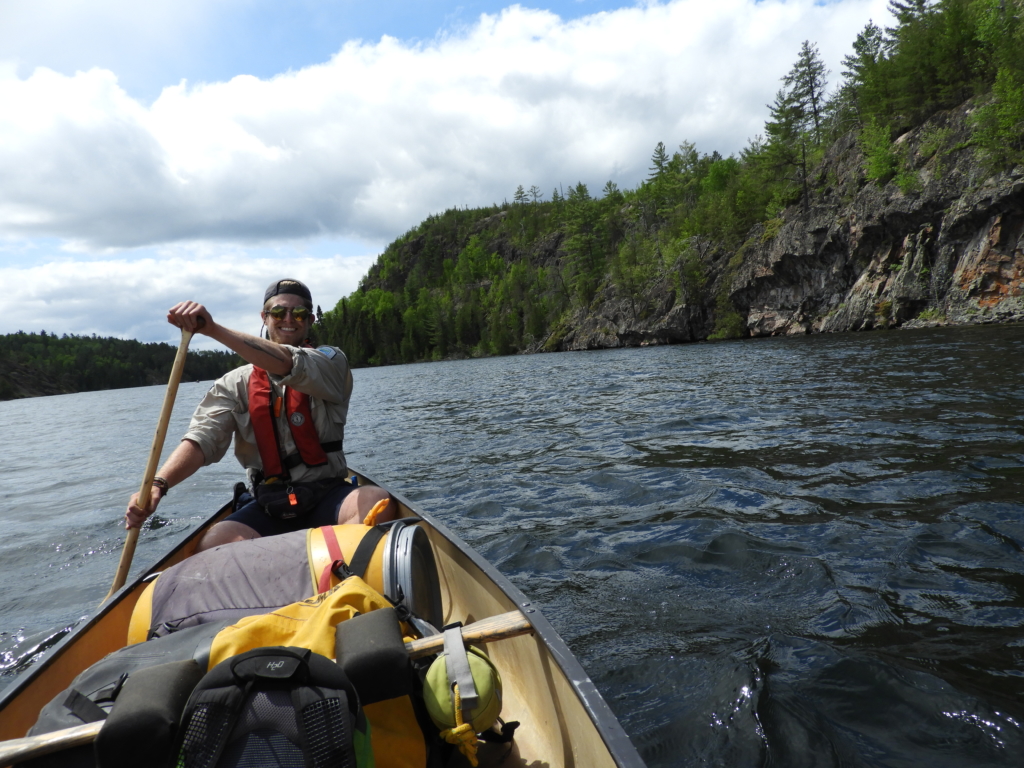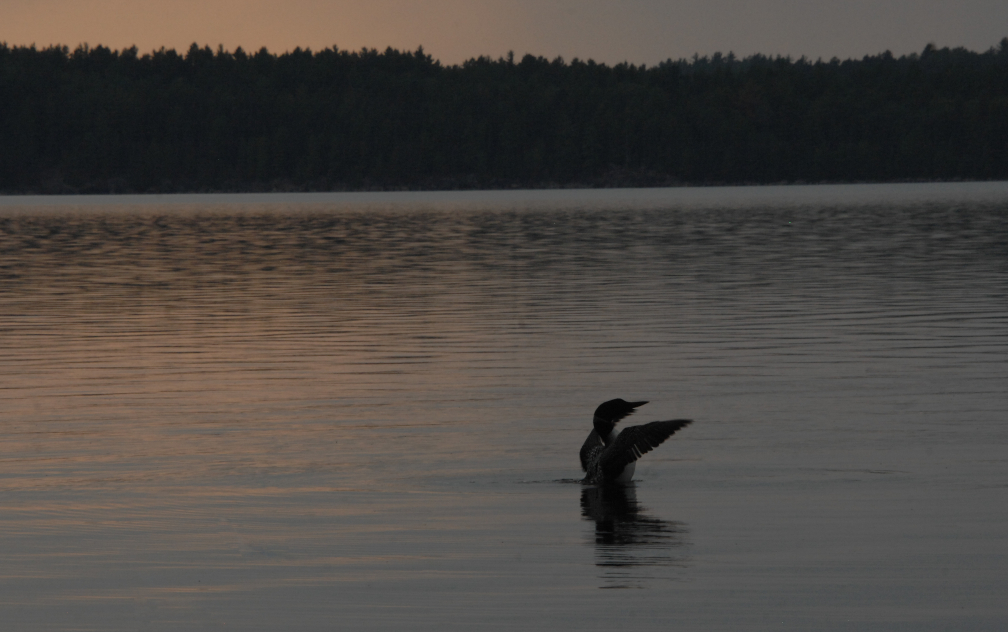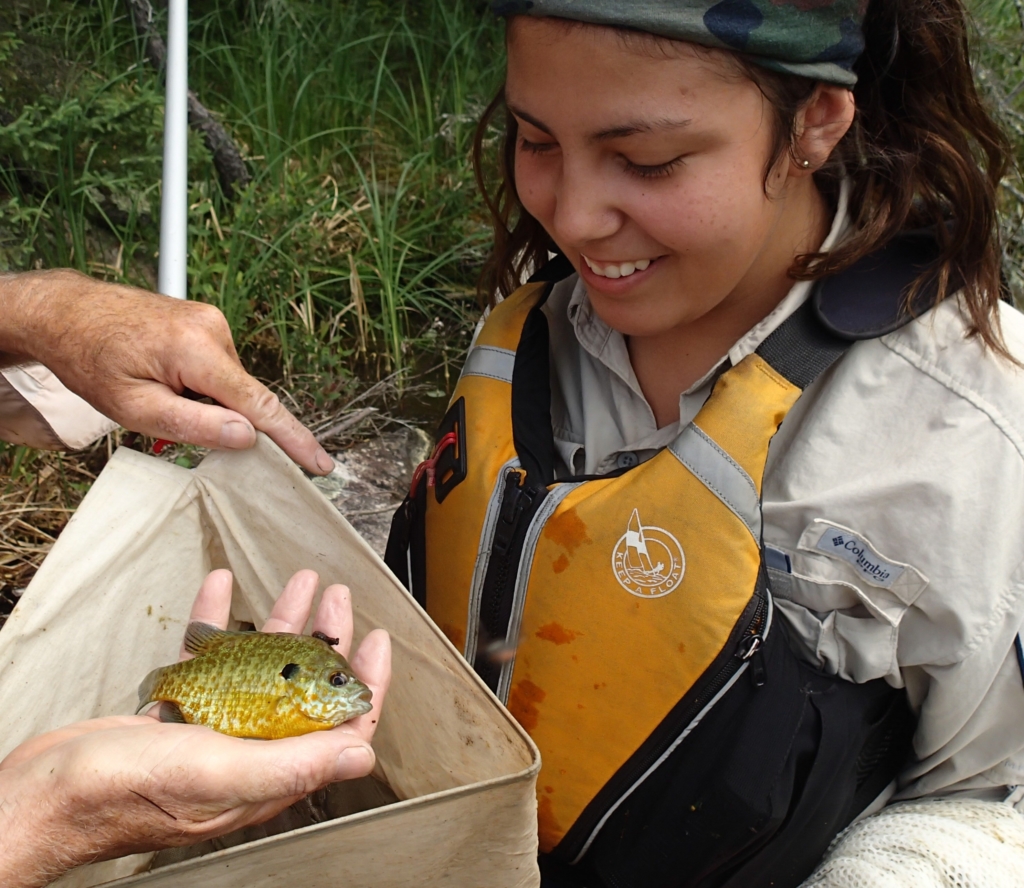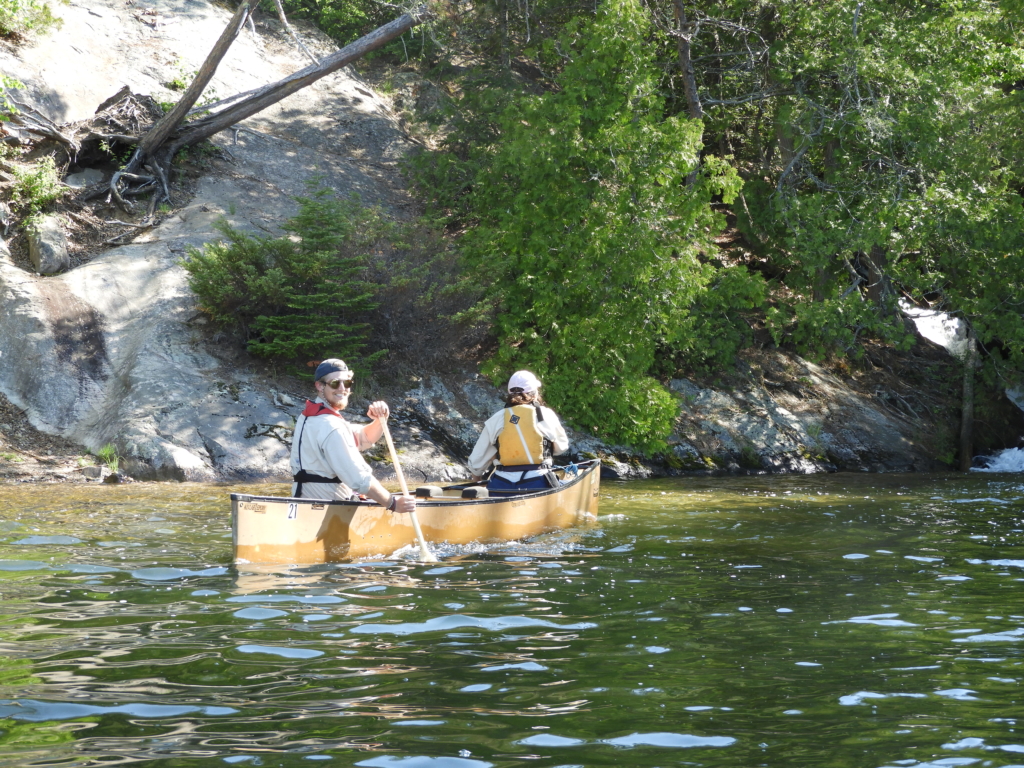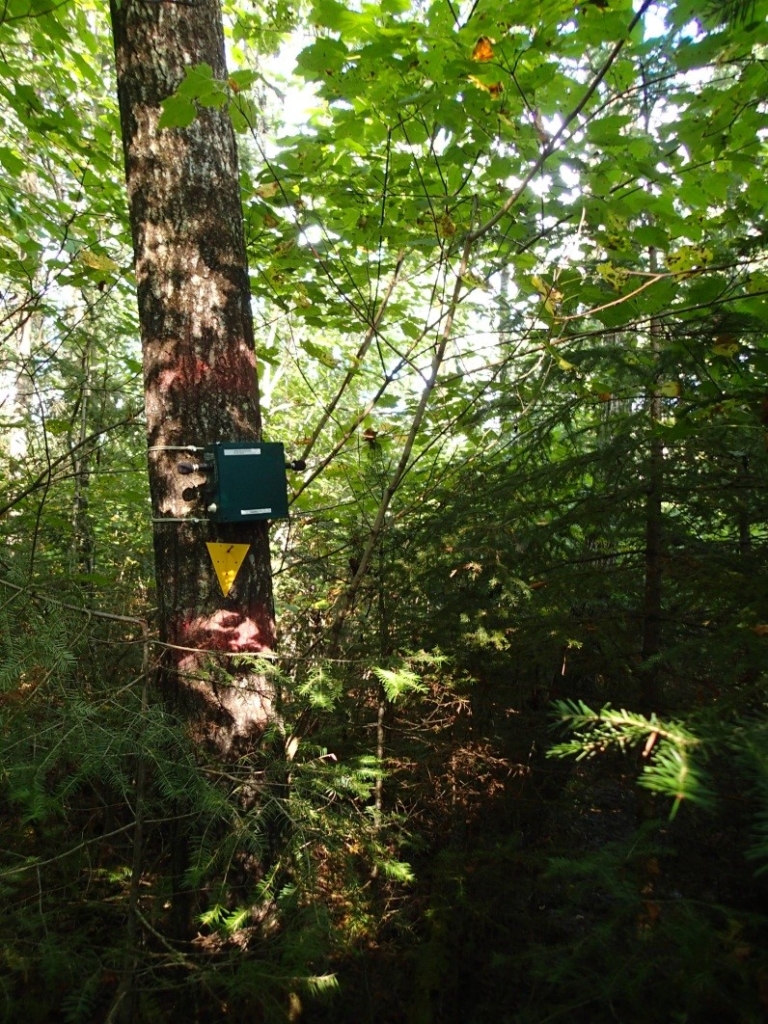Highlights of Quetico Provincial Park Bat/Bapakwaanaajiinh Survey: 2017-19
Introduction:
Bats (bapakwaanaajiinh in Anishinaabemowin) are an important component of biodiversity, particularly as a
voracious insect predator. Five species of bat have been reported in Quetico, including three species of
migratory bats – Hoary Bat (Lasiurus cinerius), Silver-haired Bat (Lasionycteris noctivagans) and Eastern Red Bat(Lasiurus borealis) as well as two non-migratory species – Big Brown Bat (Eptesicus fuscus) and Little Brown Myotis (Myotis lucifugus). In addition, Northern Myotis (Myotis septentrionalis), another non-migratory species, has been confirmed immediately north of Quetico but has not been identified from within the Park. However very little is known about their population status or habitat use in the Quetico Provincial Park.
Due to the high risk of White-nose Syndrome (WNS), non-migratory species which hibernate in colonies such as Little Brown Myotis and Northern Myotis have been classed as Endangered in Ontario. White-nose Syndrome is caused by a cold and damp-loving fungus (Pseudogumnoascus destrutcans) that causes a skin infection in bats. Discomfort from the infection causes hibernating bats to wake up more frequently during the winter when food and water is not available, causes bats to dehydrate and use up fat reserves prematurely, often resulting in death. Initially identified in North America in the winter of 2006-07, White-nose Syndrome was first observed in northwestern Ontario during 2014-2015 and has expanded across the region since then.
The purpose of this project was to determine the presence and abundance of Species At Risk bats (i.e. Little Brown Myotis (Myotis lucifugus) and potentially Northern Myotis (Myotis septentrionalis)) relative to other bat species in Quetico Provincial Park. and compare distribution of identified bat species along survey route.


